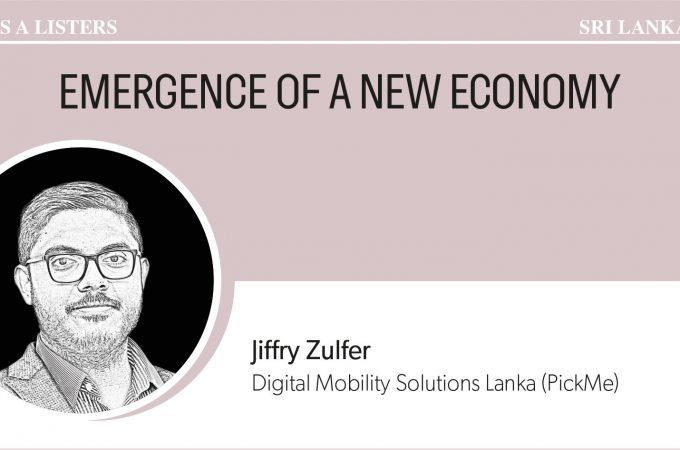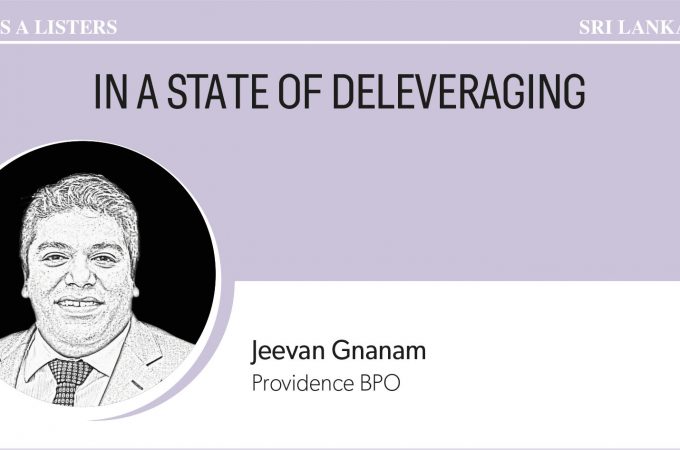THE LOSS OF JOBS IS INEVITABLE
Q: How do you see the new Normal for Business panning out?
A: The crisis has forced corporates to rethink their business models to make them more resilient to shocks. As such, we will see extensive embracement of technology especially around remote working, online shopping and delivery capabilities – with more collaboration within industries aiming to eliminate waste due to duplication, which could increase our competitiveness as a country.
Banking too will adopt leaner infrastructure seeking to digitise back office operations and also use the impetus provided by the crisis to move customers towards digital platforms. This will drive the rationalisation of the real estate footprint of banks in the medium term.
In the face of challenging economic conditions ahead, banks will double down on relationship banking to capture more wallet share of the existing customer base, which is beneficial to both the banks and their customers.
Q: How do you view Sri Lanka’s COVID-19 response so far? What are the pros and cons?
A: I believe the swift and decisive action taken by authorities prevented a greater catastrophe. The contact tracing and other precautionary measures taken such as the establishment of quarantine centres on short notice have been commendable. The subsequent economic stimulus package for the corporate sector and individuals especially towards the vulnerable is commendable too considering the country’s financial muscle.
However, these actions come with unavoidable repercussions. It will take at least 18 months to recover the economic costs of this crisis. This in turn will test the resilience of the financial services industry as it is burdened with the cost of not letting the economy slip further while simultaneously supporting efforts to revive it.
At the outset, the response from the private sector in putting together a home delivery system for groceries and pharmaceuticals could have been better coordinated with state inputs.
While the debt moratorium and other credit related relaxation measures provided are appreciated, the stimulus package by way of refinancing announced so far may not be adequate given the large number of SMEs and corporates affected by the COVID-19 pandemic. We may have to increase the quantum and also look at credit guarantee schemes so that banks can mitigate the additional credit risks they will begin to carry.
Q: What is the outlook for jobs and employment in the medium term? And how should the authorities address the prospect of rising unemployment?
A: I believe that the loss of employment will be a very unfortunate reality of this crisis. In industries directly impacted, such as tourism and apparel, it will be inevitable as the survival of the companies is under threat. Of course, some industries – such as tourism and apparel, once again – will bounce back given Sri Lanka’s unique product offerings; but until then, we need to keep them afloat.
In addition, I believe that rising unemployment will lead to further stress on the economy and impede the recovery process. Given that this is a global crisis, internal consumption will play a key role in economic revival. An emphasis on producing and buying local will help keep unemployment in check to some extent.
In the medium term, new industries involving logistics will emerge, as would technology driven agriculture, storage and packaging, delivery platforms etc. The authorities should move swiftly to identify these industries and establish a nationwide programme to reskill people to adopt such new opportunities while providing sufficient incentives to the private sector to invest in these segments of the economy.
Furthermore, there is an important role to be played by the private sector in the context of the national and global crisis, as long as they put the well-being of the community and economy ahead of their bottom lines.
ABOUT LMD’S A LISTERS
BOOST TO REAL ESTATE INVESTMENT
 Q: What are your expectations of the business environment in the next 12 months or so? A: With the reduction in interest rates and increase in money circulation, people have a greater tendency to invest in real estate over the money market amidst the pandemic. We have seen similar patterns even in developed markets such…
Q: What are your expectations of the business environment in the next 12 months or so? A: With the reduction in interest rates and increase in money circulation, people have a greater tendency to invest in real estate over the money market amidst the pandemic. We have seen similar patterns even in developed markets such…
EMERGENCE OF A NEW ECONOMY
 Q: How did the pandemic necessitate a digital economy? A: Countries were not prepared for the COVID-19 pandemic’s impact on the economy and people, but it has resulted in the emergence of a new economy and way of life. It is technology, and the spirit of humans to survive and push past boundaries that have…
Q: How did the pandemic necessitate a digital economy? A: Countries were not prepared for the COVID-19 pandemic’s impact on the economy and people, but it has resulted in the emergence of a new economy and way of life. It is technology, and the spirit of humans to survive and push past boundaries that have…
PRIORITISING CRUCIAL SECTORS
 Q: What are your expectations of the business environment in the next 12 months or so? A: I believe that business is not likely to pick up until at least mid-next year for the hospitality sector. Business was nonexistent and as a measure to prevent exorbitant losses, we converted our hotel into a quarantine centre…
Q: What are your expectations of the business environment in the next 12 months or so? A: I believe that business is not likely to pick up until at least mid-next year for the hospitality sector. Business was nonexistent and as a measure to prevent exorbitant losses, we converted our hotel into a quarantine centre…
A POSITIVE AND FLEXIBLE PATHWAY
RELIABLE PARTNERS IN A CRISIS
 Q: In brief, what are the main challenges confronting corporates at this time? A: I think corporates today are besieged with a plethora of problems caused by the prevailing situation. First and foremost is the challenge in keeping their workers safe from COVID-19, and flowing from that is the inability to keep production cycles running…
Q: In brief, what are the main challenges confronting corporates at this time? A: I think corporates today are besieged with a plethora of problems caused by the prevailing situation. First and foremost is the challenge in keeping their workers safe from COVID-19, and flowing from that is the inability to keep production cycles running…
IN A STATE OF DELEVERAGING
 Q: How do you perceive the economic climate at present? A: I would like to really think about the state that the country’s economy is in. Our debt repayments are much higher than our income and this puts Sri Lanka in a state of deleveraging. This recently manifested itself in a 14.2 percent increase in…
Q: How do you perceive the economic climate at present? A: I would like to really think about the state that the country’s economy is in. Our debt repayments are much higher than our income and this puts Sri Lanka in a state of deleveraging. This recently manifested itself in a 14.2 percent increase in…
EVER EVOLVING EXPECTATIONS
 Q: What modern-day challenges do businesses face? A: Information overload – in the new world we live in, there’s never a lack of information. About 2.5 quintillion data bytes are added every day; more data is created in a single day than the combined amount generated over 99 percent of human history. Previous generations of…
Q: What modern-day challenges do businesses face? A: Information overload – in the new world we live in, there’s never a lack of information. About 2.5 quintillion data bytes are added every day; more data is created in a single day than the combined amount generated over 99 percent of human history. Previous generations of…
EXPANDING CREDIT FACILITIES
 Q: What is the bank’s corporate strategy for 2021/22? A: DFCC Bank’s 2021/22 plan is based on our five year strategy for 2020-2025 with the aim of making it one of the most customer centric and digitally enabled banks by 2025. Our lending plans will align with the government’s budget proposals to facilitate the growth…
Q: What is the bank’s corporate strategy for 2021/22? A: DFCC Bank’s 2021/22 plan is based on our five year strategy for 2020-2025 with the aim of making it one of the most customer centric and digitally enabled banks by 2025. Our lending plans will align with the government’s budget proposals to facilitate the growth…
REMAINING IN THE SPOTLIGHT
 Q: What are Sri Lanka Tourism Development Authority’s (SLTDA) priorities for 2021/22? A: The global tourism industry will continue to experience a huge shift in the way of doing business. Our innovative bio-bubble concept launch in January was recognised at ITB Berlin. We hope this will boost traveller confidence. Therapeutic destinations and experiential travelling are…
Q: What are Sri Lanka Tourism Development Authority’s (SLTDA) priorities for 2021/22? A: The global tourism industry will continue to experience a huge shift in the way of doing business. Our innovative bio-bubble concept launch in January was recognised at ITB Berlin. We hope this will boost traveller confidence. Therapeutic destinations and experiential travelling are…






